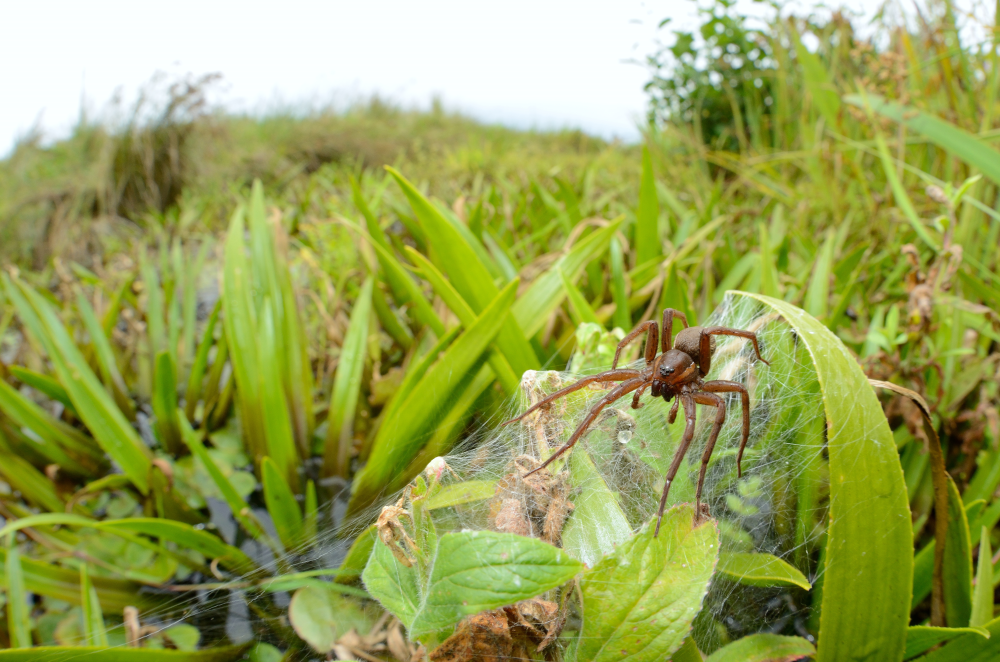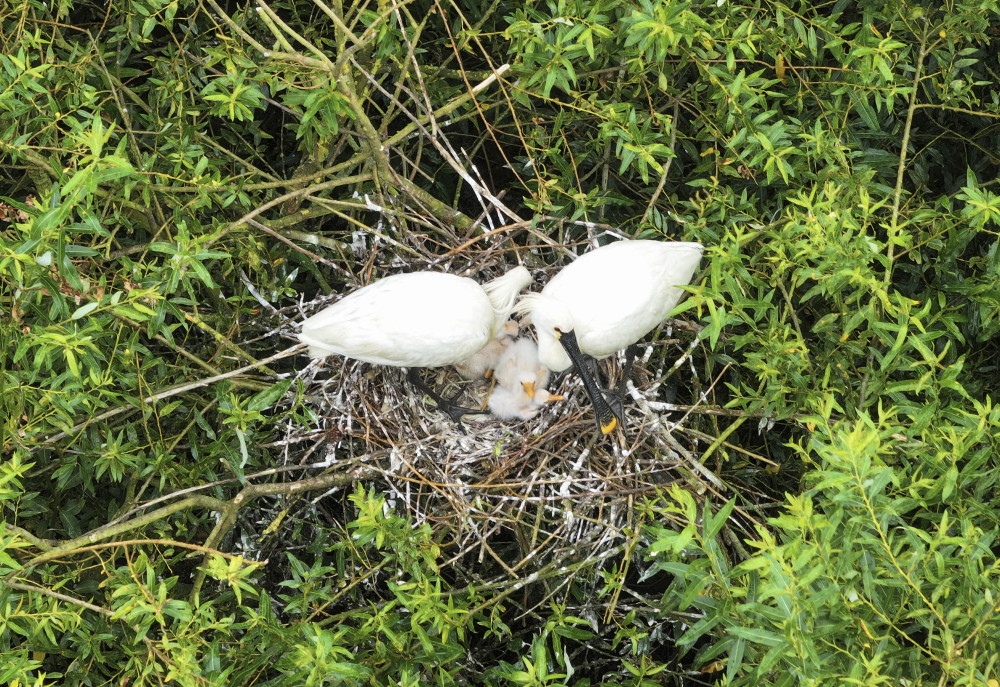In Kazakhstan lives an antelope that wouldn’t look out of place on the set of Star Wars. Saiga and their gloriously wibbly noses are one of the planet’s most remarkable species, but poaching and mass die off events saw their numbers crash. In 2024, however, the Earthshot Prize awarded an ecosystem restoration effort that’s enabled the saiga antelope population to recover from 40,000 to 2.8 million in the last 20 years.
As part of the Altyn Dala Conservation Initiative, the Royal Society for the Protection of Birds (RSPB) are celebrating their international efforts to restore 75 million hectares of grassland, wetland, and desert in Kazakhstan, which is home to the once Critically Endangered antelope. As a keystone species, saiga are pivotal in maintaining a healthy ecosystem, and one that’s also relied upon by steppe eagles, sociable lapwings, kulan (wild ass), and the Przewalski’s horse, demonstrating there’s a lot more to these antelope than their alien-like proboscis.
It’s great news for big-nosed wildlife, and just one of five stories from 2024 that prove we can still be hopeful about the future of our non-human neighbors.
“This year has secured major nature wins – from the historic sandeel fishing closure to saving species like Saiga antelope from extinction – the RSPB has demonstrated what can be achieved through vital conservation efforts,” said RSPB Chief Executive, Beccy Speight, in a statement emailed to IFLScience.
“This wouldn’t have been possible without the passionate help from our members, volunteers and supporters. Whilst nature still faces many challenges, the RSPB is committed to finding, implementing and championing solutions that will give hope to our precious wildlife and wild spaces for many years to come.”
Hope for the UK’s biggest spider species

A fen raft spider female guarding an egg sac.
Image credit: Ben Andrew, RSPB
The fen raft spider is the UK’s biggest spider, but as one of its rarest, it’s become the focus of conservation efforts to restore their numbers. The RSPB alongside several organizations have been introducing spiders to new sites and managing the grazing marshes these semi-aquatic ambush predators need to thrive. One such release took place at RSPB Mid Yare on the Norfolk Broads in 2012, and it’s estimated there are now 3,750 females here.
Spoonbills’ precious teaspoons

An adult pair of spoonbills nesting with their teaspoons.
Image credit: Jonathan Taylor, RSPB
Spoonbills made a triumphant return to Cambridgeshire for the first time since the 17th century in 2024. They were once wiped out due to hunting and habitat degradation as wetlands were drained, but efforts to restore ecosystems have seen numbers climb in Europe.
Meanwhile, over at RSPB Havergate Island, mating pairs have climbed to 17 and this year fledged 35 spoonbills – known affectionately to reserve teams as “teaspoons”. The future looks bright for these snowy white birds and their characteristically spoon-shaped bills.
Preventing one of the world’s rarest birds’ extinction… with wasps
Another international project for the RSPB saw a number of small parasitoid wasps, Microterys nietneri, transported 10,000 kilometers (6,200 miles) from London to Nightingale Island, which is part of the Tristan da Cunha Group in the South Atlantic. It was hoped the tiny wasps could provide a lifeline to the Wilkins’ Bunting finch, Nesospiza wilkinsi, by controlling invasive insects that were devastating the bird’s only food source.
Only 10 percent of the wasps survived the journey, but it was enough to establish a strong enough population to support the forest’s recovery by controlling the invasive insect population. It’s now estimated there are between 60 to 90 breeding pairs of Wilkins’ Buntings, and their numbers are expected to climb.
Saving sandeels to save seabirds

Puffins may look cute, but they’ll fight you for a sandeel.
Image credit: Katie Nethercoat, RSPB
Sandeel fishing at an industrial scale has had a knock-on effect on puffins and kittiwakes who eat these fish in large numbers (and sometimes come to blows over them). Since 1996, the RSPB has been campaigning to close the fisheries and it was finally successful in early 2024.
“The closure of industrial sandeel fisheries has provided a lifeline to under-pressure seabird species such as Puffins and Kittiwakes that depend on sandeels for food,” said Speight. “Their populations are in serious decline and this closure is an essential first step towards helping their populations to recover, thereby underpinning wider marine food chains that support our seabirds.”
However, the decision is now being challenged by the EU Commission and so the RSPB and several conservation groups across the UK and Europe are continuing to campaign against a roll-back on this hard-won victory.
These stories are a reminder of what we can achieve when we commit to investing in nature, and what we stand to lose if we take their place on this Earth for granted.
Source Link: One Of The Most Significant Mammal Recoveries Ever Recorded Scoops 2024 Award